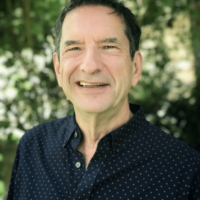When you reflect on the people who have had the greatest impact on you, your first memory or thought is probably more about who they were – their presence, how you felt when you were with them – than about what they did or said. We tend to remember feelings before details. Impact occurs not so much because of what happened, but because of how we felt while it was happening, and how we felt afterwards. The depth and quality of that impact comes from how deep the initial feeling went inside of us, and whether that feeling lasted for a few moments, for days, for weeks, or longer.
In other words, the literal actions or sequence of events as they unfold are often not what makes the greatest impact on us. Instead, it is what happens inside of us – our feelings and emotions – that determines the impact and how we interpret it.
While we can’t control how other people will react or respond to our choices, decisions, or actions, we can choose our intentions and motivations. We can be conscious of feelings and experiences that others may have because of our actions.
We can be honest with ourselves. Are we acting primarily in service of our own interests, or of the company’s interests, or for the sake of a quick fix? Or are we clear in our intentions to serve the best for everyone involved?
Richard Rohr, the founder of the Center for Action and Contemplation in Albuquerque, New Mexico, writes about “the task within the task – what we are really doing when we are doing what we are doing.” Two people can fulfill the same task or be assigned the same role, yet your experience of who they are, and therefore what they do, can be very different.
Awareness is key – awareness of our own motivations and intentions as well as the potential consequences of our presence and action. Acting in integrity comes from purifying our intentions and being honest about why we are doing what we are doing.
Whether you are a parent, a teacher, a friend, a manager, a policy-maker, or a CEO, the quality of your presence matters as you make choices, decisions, and actions.
When your intentions and motivations are benevolent, people feel that. And they respond accordingly.
On the other hand, when your intentions and motivations are guided by hidden agendas, people sense that very quickly, too. And they become cautious and wary in their response.
Asking yourself a few direct questions can increase your awareness.
- What is my role or task right now?
- What are the choices and decisions I am making and/or the actions I am taking?
- What are the motivations and intentions behind what I am doing?
- Who am I becoming when I am guided by those motivations and intentions?
- How does that impact others? How do they respond? And how does it impact me?
- What is important to pay attention to in my presence going forward?
Keep these questions in your awareness. Let them work on you. To paraphrase Richard Rohr’s words: Who are you being when you are doing what you are doing?
~ ~ ~
If you enjoyed this blog post and found it helpful or inspiring, please share it with your friends on social media by clicking on the icons below. You are also welcome to make a comment below.
You may subscribe to our free weekly newsletter by clicking here.
Related Blog Posts:
- Presence – How You Show Up – It’s the Most Important Thing
- Acknowledging Your Fear and Finding Your Way Forward
- Reflections on 10 Years of Serving Transformational Presence





































